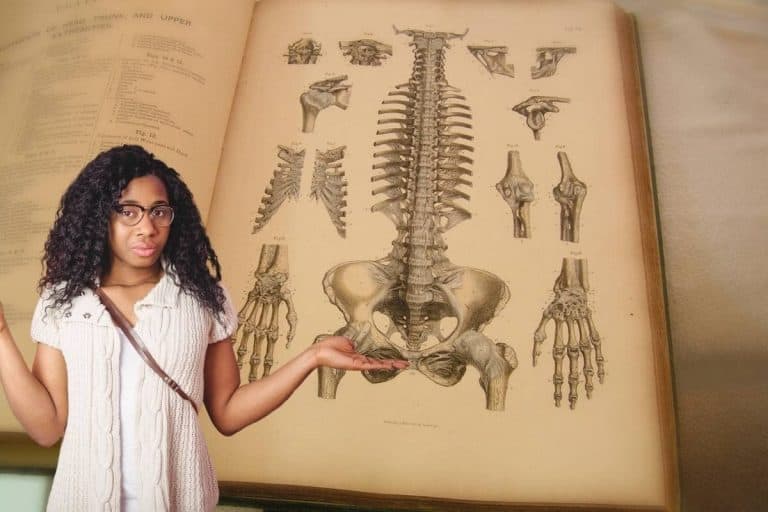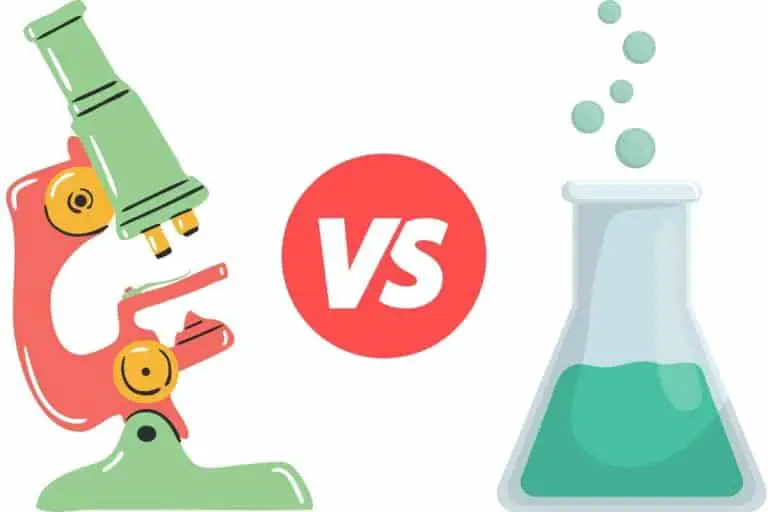AP Chem vs. Chemistry: Differences and How to Choose
AP Chem and Chemistry are two challenging science courses offered in high school. Though they cover the same topics, there are significant differences in the level of difficulty. How do you choose between the two courses?
Chemistry covers measurement and units, matter, energy, atoms, molecules, chemical equations, and the periodic table. AP Chemistry covers those same topics in more depth and challenge. Choose the right course based on your experience, study habits, and your plan for college.
This article will cover the differences between these two courses in detail and what you can take first. It’ll also give a guide for choosing between AP Chemistry and regular chemistry, as well as the advantages of taking the AP course.
What Makes AP Chemistry Harder than Regular Chemistry?
AP Chemistry is harder than regular chemistry because it dives deeper into the topics and involves more in-class work and homework. Teachers give the same amount of guidance on information, but students in AP courses are assigned more work and must complete it in a faster-paced environment.
This is because AP classes are designed by the College Board and are the same for every high school.
Teachers have some say over the learning strategies, but the College Board decides the topics and exams. To understand the difference between the two courses, take a look at the details of each.
Source: College Board: About Our Organization

What is Chemistry?
There are several different types of chemistry, including analytical, inorganic, organic, physical, and biochemistry. Each covers a separate area of the subject. For example, biochemistry studies molecules in living organisms, while inorganic chemistry works with the properties of metals, minerals, and other inorganic compounds.
See also: Organic vs Inorganic Chemistry: Differences and Difficulty
A regular high school chemistry course covers energy, atomic structure, molecules, and phases of matter. Classes involve using the periodic table of elements, solving math problems, and working with lab experiments.
Sources: Goucher College, American Chemical Society, and Virginia Department of Education
What is AP Chemistry?
AP Chemistry is a challenging, in-depth version of regular chemistry. Classes are more complex, fast-paced, and thorough than traditional courses. The topics covered in AP chemistry are similar to those in a standard class but go deeper into the details and often cover more because of the fast pace.
AP courses are college-level courses.
In other words, a high school AP Chemistry class is equivalent to a college-level introduction to chemistry course. The rigor and difficulty of AP classes match that of a college class. AP classes are also analogous nationwide.
The curriculum in any high school AP is agreed upon by the College Board, as is the end-of-year exam.
Can You Take AP Chemistry Without Taking Chemistry First?
You can take AP Chemistry without taking regular chemistry first, but it is a challenge for most students. In fact, some high schools in the U.S. don’t allow students to take AP classes without a primary class under their belts.
The reason for this is that the rigor involved in an AP class is easier for students who already understand the basic concepts.
There are challenging concepts and skills to master with a subject like chemistry that often needs more than one year of learning. By taking regular chemistry before AP, you have a better chance of success.
However, there are some situations in which you can take AP Chemistry first:
- Your school has a placement test. Some high schools offer placement tests that give administrators and teachers an idea of students’ skill levels before starting school. If your school has a placement science or chemistry assessment, you may be able to skip the regular chemistry course. High scores on a diagnostic chemistry exam could let you test out of the main-level course.
- You excel in similar subjects. If you’ve taken biology, physics, environmental science, algebra, and calculus, you’ll have a feeling about your skills in chemistry. If you excel in similar subjects, you’ll likely be able to succeed in an AP Chemistry class with no prior experience.
- You’re committed to studying ahead. Regardless of your skill level or prior experience with chemistry, expect to study ahead if you take AP Chem first. Because the class is rigorous and involves many assignments, you’ll need a commitment to extra work and even some late nights. It’s also helpful to learn about your school’s support structures like office hours, study halls, and additional reading materials.
Source: Bishop Ireton High School: High School Placement Test
Source: Khan Academy: Preparing to Study Chemistry
Source: Brandeis University: First Year Placement
Should You Take AP Chem or Regular Chemistry?
Whether you should take AP Chem or Regular Chemistry is up to you. Deciding to take AP Chem is a commitment to a challenging year of science, so it’s essential to take into consideration your current skill level, your school’s resources, and your plan for college.
Look At Your Experience with Similar Courses
Because chemistry relies so heavily on other skills, it’s important to consider your experience with other math and science courses. You might have taken biology or earth science earlier in your high school career.
These classes, especially biology, can give you an idea of how you’ll do with the science component of AP Chemistry.
Another area of study to consider is math. If you excelled in Calculus and Algebra, you’d likely have an easier time with the math components of chemistry. In that case, you might be ready to skip to AP Chem without first taking the regular course.
If math and science aren’t your forte, contemplate taking a regular chemistry course first. As you’ll read later, adding an AP course to your college application isn’t as beneficial as getting high grades in all your studies.
Source: Khan Academy: Preparing to Study Chemistry
Look At the Support Your School Has in Place
Your school wants you to succeed, and it’ll have support in place for you to do so. Whether that’s after-school study halls, office hours with teachers, or additional reading materials, there are tools to help you.
If you want to take the AP level chemistry, ensure you have resources in place in case the course is challenging.
Another idea is to discuss this with your guidance or college counselor. Your teachers know about your schedule, other challenging courses, and your skills as a student, so they can use this information to help you decide whether skipping to AP is right for you this year.
Consider Your Plan for College
One major factor for deciding on AP Chemistry is your plan for college.
Two elements go into this: your major and whether you plan on pursuing a job in the medical field. Taking AP Chemistry in high school can help you on your future career path, but it’s not necessary for some situations.
Because AP Chemistry is a college-level course, many universities accept a successfully completed AP class as credit for an introductory course. If you take AP Chemistry in high school and get a 4 or 5 on the final exam, you may be able to skip the introduction level chemistry.
There are three reasons why you should take AP Chem over regular chemistry. Let’s dive into why AP Chemistry is suggested for each of these three reasons.
1. You Want to Graduate in Less than Four Years
Taking AP classes in high school can potentially lessen the number of courses you need in college. You can receive college credit for an AP course if you have a high enough grade on the final exam.
Most colleges require 120 credits for an undergraduate degree. Taking AP Chemistry can give you several credits, decreasing the amount you need to earn once you start school.
If you’re on an abbreviated timeline for college, taking AP Chemistry in high school is a great idea.
Source: College Board: Getting Credit and Placement
2. You Want to Pursue a Degree in a Related Subject
Similarly, if you plan on majoring in a related subject like biotechnology, earth science, food science, or even forestry, AP Chem can help. Taking the course in high school is beneficial for your college career.
While it decreases the number of credits you still need to complete, it also gives you a leg up on some of the subjects you study. Regular chemistry creates a foundation of understanding for AP Chemistry.
In the same way, AP Chemistry in high school can give an excellent foundation for the science classes you’ll take for your major.
Source: Columbia University: Frequently Asked Questions (From First-year Students)
3. You Plan on Going to Medical School or Other Graduate Programs
If you have an intention of going to medical school, AP Chemistry can help move you forward. As with accelerating your graduation date and giving you a foundation for other science courses, it can also aid in your journey to medical school.
In fact, some medical schools will accept the credits earned in AP Chemistry as a replacement for introductory chemistry. However, many medical schools don’t, but that doesn’t mean high school AP Chemistry is useless.
For medical schools that don’t accept the credits earned in high school, you can usually take two semesters of chemistry at your university. Taking the AP class in high school can help you by providing a foundation for those two classes, as well as giving you more choices for what chemistry to take.
Source: Yale University: Pre-Med Curriculum Advice on Advanced Placement (AP) Credit
Source: University of Chicago: Placement & AP Tests
Is AP Chemistry Worth It?
AP Chemistry is worth it, according to most students, teachers, and university administrators. AP Chemistry will give you a foundation for later science classes, potentially help you with college applications, and even further your career plan.
It’s important to note that taking an AP class you’re unprepared for can have some disadvantages.
These rigorous courses can have high levels of stress and take your focus away from other subjects. But, if you enter the year committed to working hard and asking for resources when necessary, there are several advantages.
The Advantages of Taking AP Chemistry
Taking AP Chemistry as a high school junior or senior will help you in a number of ways. Assuming you do successfully in the class, it can further your college experience and help you in your future career.
AP Chemistry can:
- Give you opportunities to challenge yourself. Even if you’re not used to taking challenging classes, entering into AP Chemistry can help you learn to do so. It’s an opportunity to learn about yourself as a student. With that, you can practice your strategies for difficult classes in college, which will make it easier when you’re enrolled.
- Advance your college applications. Not only could it help you grow as a learner, but it can also advance your college applications. AP classes that you complete with high grades look great on college applications.
- Prepare you for other college courses. If you plan on taking other science classes in college, AP Chemistry will give you a great foundation. You’ll have a basic understanding of many skills and concepts that you can apply to other courses.
- Accelerate your graduation date. Taking AP Chemistry can help you earn credits for college. Because you need around 120 credits to graduate, several credits from an AP Chemistry class can even help you graduate early.
Source: University of Georgia: AP/IB vs DE Courses-the Pros and Cons
Source: Arizona State University: The Advantages of Taking AP Classes and Exams
Conclusion
Though it’s difficult, taking AP Chemistry has a number of advantages. It’s an excellent choice if you want to challenge yourself, grow as a learner, and improve your college applications. It can also help you in future college science courses and a career in a related field.
If you’re committed to more studying and enjoy similar classes, AP Chemistry is the right choice for you. You can also join AP Chem if you earn a high score on your school’s placement science test.







